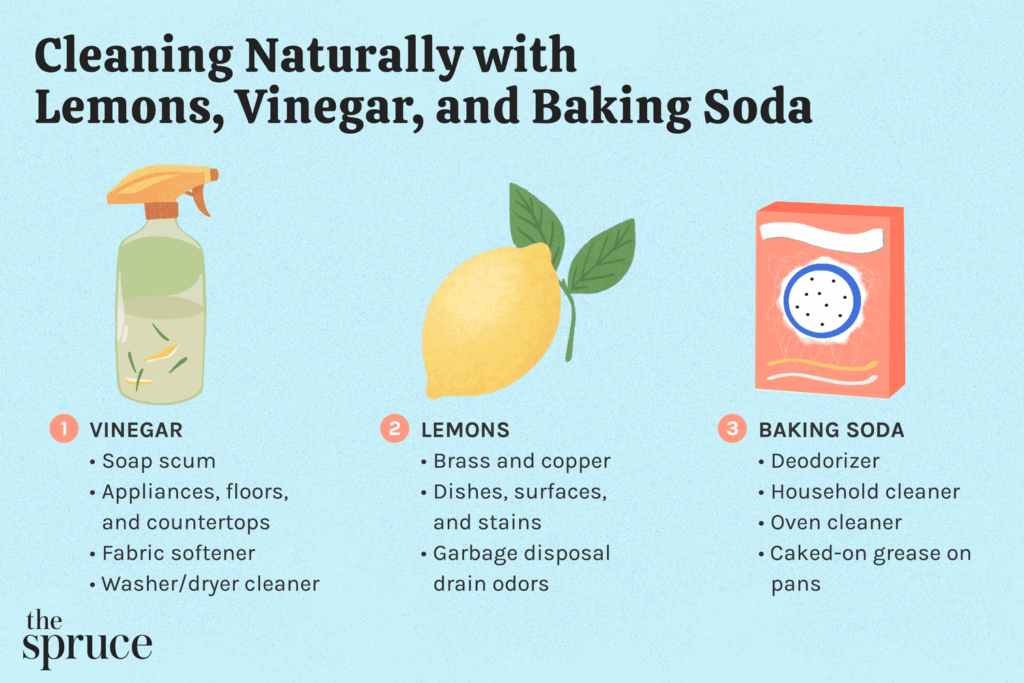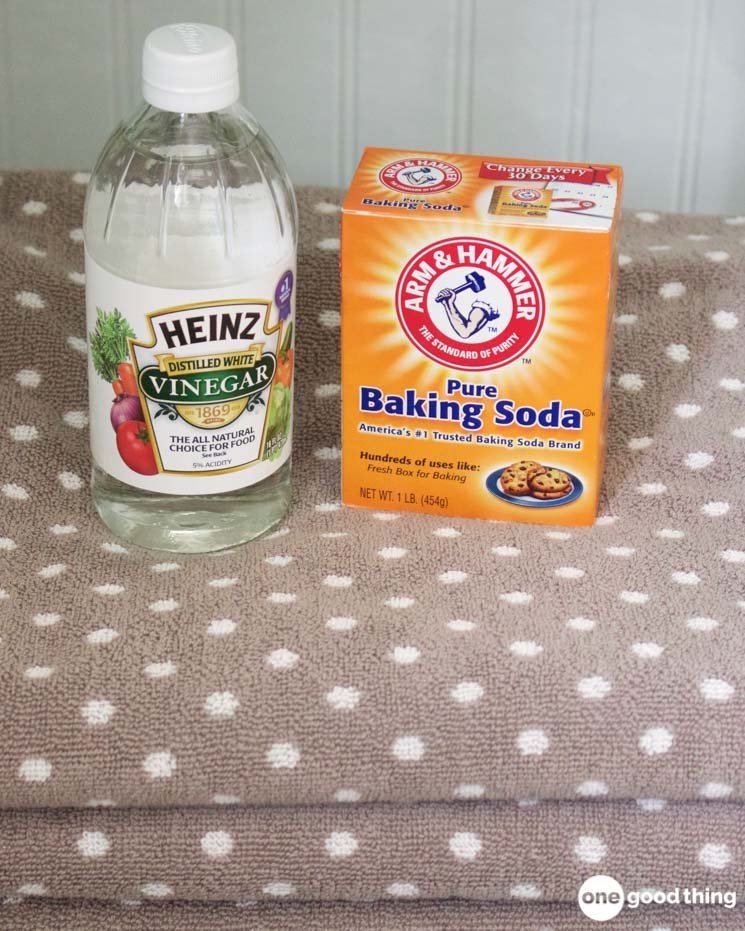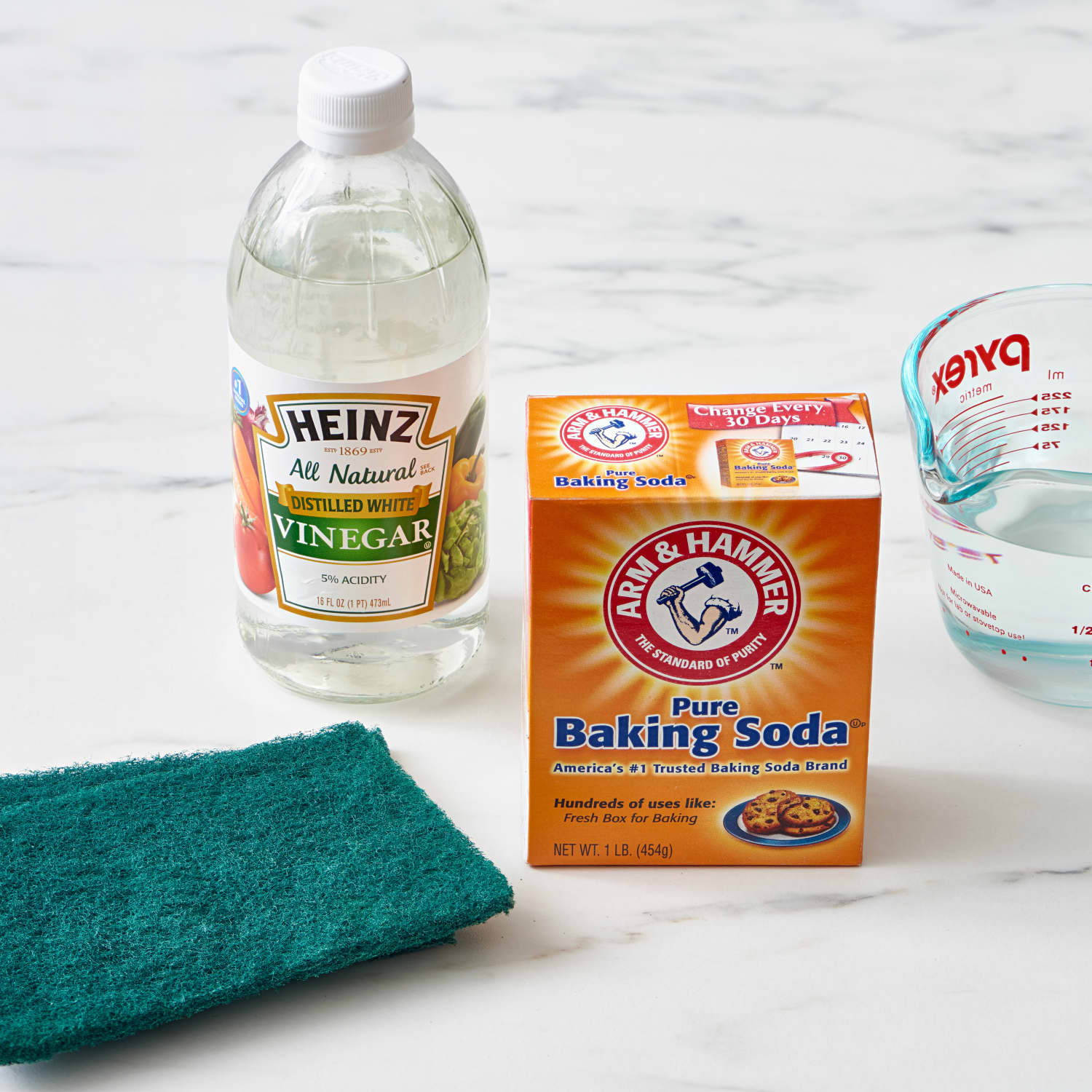Have you ever found yourself in the cleaning aisle pondering whether vinegar or baking soda is the better choice for tackling household messes? You’re not alone! This question has been intriguing homeowners, cleaning enthusiasts, and even professionals for ages. To help you make informed decisions, let’s break down the cleaning power of both vinegar and baking soda.
Understanding Vinegar
Vinegar is a versatile and commonly-used household cleaner. It’s derived from the fermentation process of ethanol by acetic acid bacteria. This process results in a liquid that typically contains 5-8% acetic acid, making it quite acidic.
Types of Vinegar
Different types of vinegar can be used for various cleaning tasks. Here are some of the most common:
| Vinegar Type | Description & Use |
|---|---|
| White Vinegar | The most commonly used in cleaning; effective and inexpensive. |
| Apple Cider Vinegar | Less acidic than white vinegar, often used for deodorizing. |
| Balsamic Vinegar | Not commonly used for cleaning; better suited for culinary uses. |
| Distilled Vinegar | Highly effective cleaner due to high acetic acid content. |
How Vinegar Works
Vinegar’s acetic acid component breaks down grime, mineral deposits, grease, and bacterial films. Its acidic nature makes it particularly effective against organic materials and basic (alkaline) grime.
Understanding Baking Soda
Baking soda, also known as sodium bicarbonate, is a mild alkaline compound. It’s a staple in kitchens and has numerous uses beyond cooking, including odor absorbance, gentle scrubbing, and pH balance.
Properties of Baking Soda
| Property | Description |
|---|---|
| Mild Abrasive | Efficient for scrubbing without scratching surfaces. |
| Odor Neutralizer | Absorbs and neutralizes odors effectively. |
| Alkaline Nature | Helps to break down acidic stains and dirt. |
| pH Balance | Neutralizes pH levels, making it versatile in various cleaning contexts. |
How Baking Soda Works
Due to its mild abrasiveness, baking soda is excellent for scrubbing without causing damage to surfaces. When combined with water or an acid (such as vinegar), it creates a fizzy reaction that enhances its cleaning power.

Comparing Cleaning Effectiveness
To determine which cleaner is superior, let’s compare vinegar and baking soda across various common cleaning tasks.
Kitchen
Grease and Grime
- Vinegar: Its acidic properties break down grease. Dilute it with water and spray on greasy surfaces; wipe clean.
- Baking Soda: Acts as a gentle abrasive. Make a paste with water to scrub away grease stains.
| Task | Vinegar | Baking Soda |
|---|---|---|
| Countertops | Effective; safe for most surfaces when diluted. | Gentle scrub; excellent for stubborn spots. |
| Ovens | Breaks down grease effectively when heated slightly. | Scrubs away burnt-on food when made into a paste. |
- Winner: Combination of both. Vinegar for breaking down grease, baking soda for scrubbing.
Bathroom
Soap Scum and Hard Water Stains
- Vinegar: Dissolves soap scum and mineral buildup effectively. Simply spray and wipe off.
- Baking Soda: Excellent scrub for hard water stains after vinegar treatment.
| Task | Vinegar | Baking Soda |
|---|---|---|
| Shower Doors | Dissolves soap scum efficiently. | Scrub away residue with a paste. |
| Faucets | Excellent against lime scale. | Best for scrubbing off residue. |
- Winner: Vinegar for dissolving initial buildup, followed by baking soda for a thorough clean.
Laundry
Fabric Softeners and Stain Removal
- Vinegar: Acts as a natural fabric softener. Add during the rinse cycle.
- Baking Soda: Enhances detergent effectiveness and removes odors. Add during the wash cycle.
| Task | Vinegar | Baking Soda |
|---|---|---|
| Fabric Softener | Natural alternative that works well. | Boosts detergent, removes odors. |
| Stain Removal | Helps to remove bacteria and smells. | Pre-treat stains with a paste. |
- Winner: Both have unique benefits in laundry routines. Use together for the best results.
Floors
Tile and Hardwood Cleaning
- Vinegar: Effective on tile; not recommended for hardwood as it can dull the finish.
- Baking Soda: Safe for hardwood; add a pinch to mop water for an extra cleaning boost.
| Task | Vinegar | Baking Soda |
|---|---|---|
| Tile Floors | Dissolves grime and disinfects. | Adds extra scrubbing power, safe for grout. |
| Hardwood Floors | Not recommended. | Gentle cleaner, safe for the finish. |
- Winner: Baking soda for hardwood. Vinegar excels on tile but use caution to avoid damaging certain finishes.
Environmental and Safety Considerations
Both vinegar and baking soda are considered eco-friendly and safe alternatives to chemical-laden commercial cleaners. However, it’s essential to understand their limitations and best practices for safe use.
Environmental Impact
- Vinegar: Biodegradable and non-toxic. Derived from natural fermentation processes, and safe for the environment.
- Baking Soda: Also biodegradable and non-toxic. Its mining process is less impactful compared to manufacturing chemical cleaners.
Safety Tips
Vinegar Safety
- Avoid mixing vinegar with bleach. This combination creates toxic chlorine gas.
- Use diluted vinegar on surfaces to avoid potential damage, especially on sensitive areas like marble and granite.
Baking Soda Safety
- Use in moderation to avoid residue buildup.
- Store in a dry, cool place to maintain its effectiveness.
Cost Analysis
Cost can be a significant factor in choosing the right cleaner. Here’s a comparison of the price and affordability of these natural cleaners.
Price Comparison
| Product | Average Cost (per liter/pound) |
|---|---|
| White Vinegar | $1 – $2 |
| Baking Soda | $1 – $3 |
Long-term Affordability
Both vinegar and baking soda offer cost-effective solutions compared to commercial cleaners. They provide multifunctional benefits that extend beyond just cleaning, offering additional value and savings over time.
DIY Cleaning Recipes
By now, you might be eager to try some practical applications of vinegar and baking soda. Here are a few DIY cleaning recipes you can easily make at home:
All-Purpose Cleaner
-
Ingredients:
- 1 cup water
- 1 cup white vinegar
- 10 drops essential oil (optional for scent)
-
Instructions:
- Mix the water and vinegar in a spray bottle.
- Add essential oil for scent if desired.
- Shake well and use it to clean countertops, sink areas, and more.
Baking Soda Scrub
-
Ingredients:
- 1 cup baking soda
- Water (as needed)
-
Instructions:
- Gradually add water to the baking soda until a paste forms.
- Use the paste to scrub sinks, bathtubs, and other surfaces.
- Rinse thoroughly after scrubbing.
Odor Neutralizer
-
Ingredients:
- 1 cup baking soda
- 10 drops essential oil (optional for scent)
-
Instructions:
- Mix baking soda and essential oil.
- Sprinkle the mixture on carpets, fabrics, or in your refrigerator to remove odors.
- Vacuum or wipe away after a few hours.

Conclusion
When it comes to cleaning, both vinegar and baking soda bring their unique strengths to the table. Whether you’re dealing with stubborn grease, hard water stains, or everyday messes, these natural cleaners can help you achieve a sparkling clean home without relying on harsh chemicals.
Quick Recap
| Cleaning Scenario | Best Cleaner |
|---|---|
| Kitchen Grease | Combination of vinegar and baking soda |
| Bathroom Soap Scum | Vinegar for dissolving, followed by baking soda for scrubbing |
| Laundry Smells | Vinegar as a fabric softener, baking soda for odor removal |
| Flooring | Vinegar for tiles, baking soda for hardwood |
The choice between vinegar and baking soda ultimately depends on the specific cleaning task and personal preference. You might find that a combination of both yields the best results, providing a comprehensive cleaning solution that’s gentle on your home and the environment.
Feel free to experiment with these ingredients to find the perfect balance for your cleaning needs. Happy cleaning!

